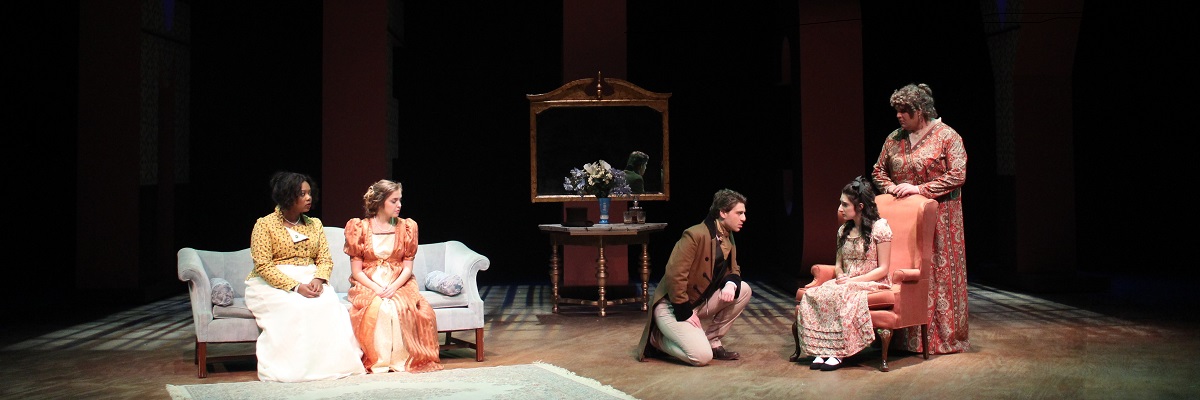Practice. Innovation. Engagement.
Students in the Department of Theatre expand their vision of the world and themselves through the study and practice of theatre.
Our program creates intellectual and creative experiences for students through rigorous classroom instruction and innovative approaches to stage production.
Our faculty of nationally and internationally recognized scholars and artists mentor students in classroom projects and collaborative works that embrace a diversity of cultural and aesthetic perspectives.
Our students are “cross-trained” artists prepared for theatrical internships, graduate programs, and professional work in the performance fields as well as in any profession that places value on innovative thinking, collaboration, and communication skills.
The Department of Theatre strives to inspire students to expand their vision of the world and themselves through the study and practice of theatre, preparing them for leadership as practitioners, educators, and artists. The structure of this preparation is two-fold. First, we promote creativity, inquisitiveness, critical thinking, communication skills (oral and written), and cultural appreciation through the study of theatre. Second, we teach the specific craft of theatre-making through classroom experience, individual and collaborative study, and actualized stage productions—all emphasizing the particular skills necessary for the generation of high-quality stage performance.
Students engage with the theory, history and material conditions of performance and broaden their personal horizons as they encounter a range of aesthetic, social and political ideas and issues embedded in various theatrical forms. From this broad-based grounding in the fundamentals of the medium, students then opt to concentrate in one of the following areas: Performance; Design/Tech; Directing, Dramaturgy and Dramatic Writing; Applied Theatre; and Theatre Education (with the possibility of obtaining a North Carolina teaching license). Throughout their training, our students work both as faculty-mentored individuals and in collaborative groups to make significant contributions to the cultural life of the community through departmental productions and various outreach and service-learning activities.

